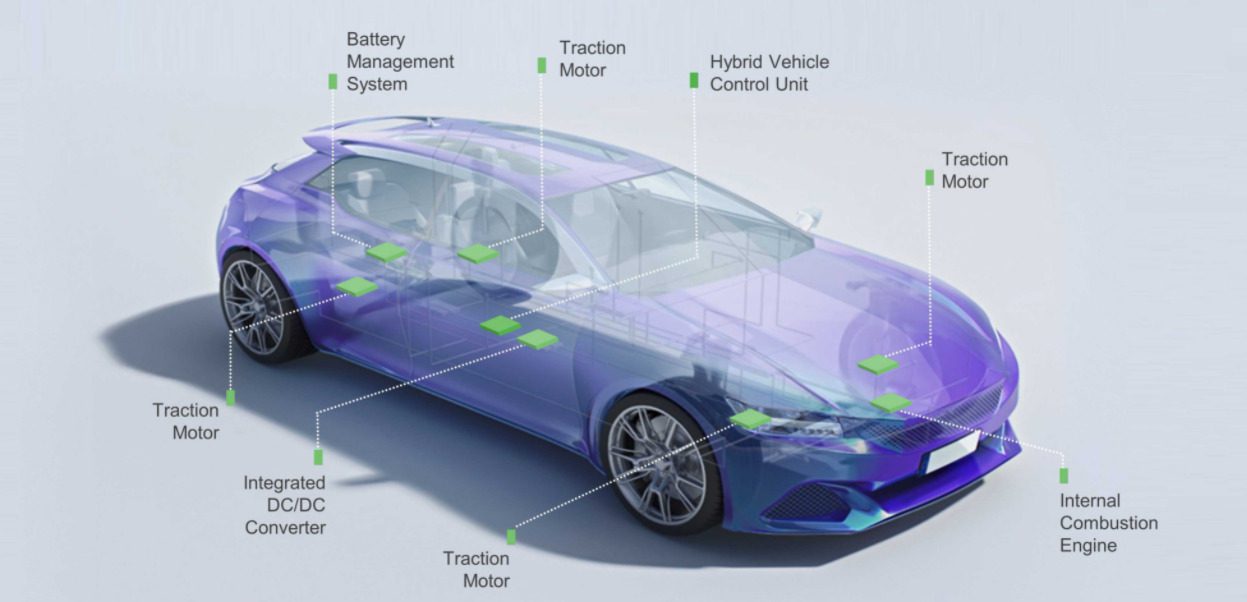The global electric mobility sector appears to be at a crossroads, given the rapid growth of the global electric vehicle (EV) ecosystem. From a policy standpoint, it is critical that government interventions and efforts build the groundwork for a EV industry, which has been dubbed the automobile sector’s “business of the future.” EVs have a dual purpose. They primarily cause the essential disruption in the automotive sector, reducing reliance on petroleum and natural gas. They also provide a significant contribution to decreasing auto-related greenhouse gas emissions and, more broadly, to the objective of reducing the emission intensity by 33%–35% by 2030.
Batteries are a critical component of the energy shift. Demand for batteries is entirely driven by electric vehicles. Over the next two decades, approximately 90% of battery demand will come from electric vehicles (EVs). In comparison, growth in portable electronics and energy storage devices is minimal.
Efficient electric vehicle value chains are still reliant on the efficiency and cost of their parts. To this purpose, battery technology in the EV category has garnered considerable attention, as batteries serve as the foundation for EVs. In the automobile sector, lithium-ion battery packs are in high demand as power sources for electric, hybrid, and plug-in hybrid vehicles. Due to its capacity to store huge amounts of energy and be recharged several times, these batteries have a high charging capacity and a long lifespan. However, lithium-ion batteries can only be used in specified conditions, necessitating the use of a battery management system (BMS) to monitor battery state and ensure operating safety.
Grab Your Free Sample PDF Copy Now
The Crucial Role of the Battery Management System (BMS)
Given the unpredictable vibration, shock loads, water immersion, and thermal loads that vehicles of all types are subjected to, among other difficult working conditions, sophisticated battery management systems are critical for battery packs.
The design and operation of such systems necessitates substantial research into various areas of battery management. Battery modelling processes enable the prediction and optimization of battery parameters such as charging and discharging times, state of charge (SoC), and lifetime. Accurate battery models make it easier to evaluate the charge and health of battery packs precisely. Additionally, cell balancing methods are often utilised to address voltage imbalances that might impair the operation of battery packs. BMS are being created as intelligent control systems that strive to improve the efficiency and lifetime of EV batteries and the vehicle as a whole. These technologies remain the future of EVs and are critical to the development of an effective and sustainable EV ecosystem.
EVBMS Is Receiving Greater Attention From Market Players
Because batteries contribute for up to 45% of the cost of an EV, a vehicle’s financial sustainability is contingent on its battery life and performance. As a result, efficient battery management solutions are in high demand. According to Reports and Data, the global electric vehicle battery management system (EVBMS) market size is expected to reach USD 6,273.1 million by 2028,. Over the next seven years, the market is predicted to register a 20.5 percent compound annual growth rate. Due to the market’s enormous growth potential, numerous EV manufacturers and participants in the electric vehicle battery management system market are introducing revolutionary EV battery management systems. For example, Brill Power, an Oxford University spin-off, has introduced a new category of sophisticated battery management systems that it claims will ‘revolutionize’ battery performance. Brill Power’s goal in developing a smart system, the BrillMS B62 Premium BMS, is to increase performance, reliability, and system uptime while decreasing waste and lifetime operating costs. Brill Power’s goal is to maintain a baseline degree of safety for battery cells by preventing them from being overcharged or over discharged, being too hot or too cold, or overloaded with electric current, all of which have harmed BMS technology in the past.
Innovation in Electric Vehicle Battery Management Systems
Automobile manufacturers are also attempting to enter the market with their own EVBMS. For example, General Motors has launched on a path to redefine itself as an electric vehicle producer. It has developed its own Ultium batteries and a new motor, both of which are branded Ultium. It is now pushing the boundaries once again with battery management software. It collaborated with Analog Devices of Boston to develop a wireless battery management system for its Ultium batteries. Unlike most systems, which have the controlled by computer installed in the car, GM’s solution will operate via the cloud, likely over a 5G or 4G network, allowing for wireless communication between the car and management software.
ION Energy, which develops battery management solutions for electric vehicles and stationary energy storage, announced EDISON Analytics in 2019, a cloud-based platform for managing the lifecycle of batteries. The platform is aimed to improve the performance and life of Li-ion batteries by leveraging battery data, modern electronics, machine learning, and artificial intelligence.
Bosch also launched a cloud-based solution in 2019, which the company claims can help extend the life of electric vehicle batteries by up to 20%. Batteries connected to Bosch’s cloud system are constantly monitored and analysed to determine the degree of stress placed on the battery by driving style and environmental factors. This information is then utilised to forecast the remaining run time of a battery, improve the charging process, and provide drivers with suggestions on how to conserve battery power via a dashboard display.
To get leading market solutions, visit the link below:
https://www.reportsanddata.com/report-detail/electric-vehicle-battery-management-system-market



































